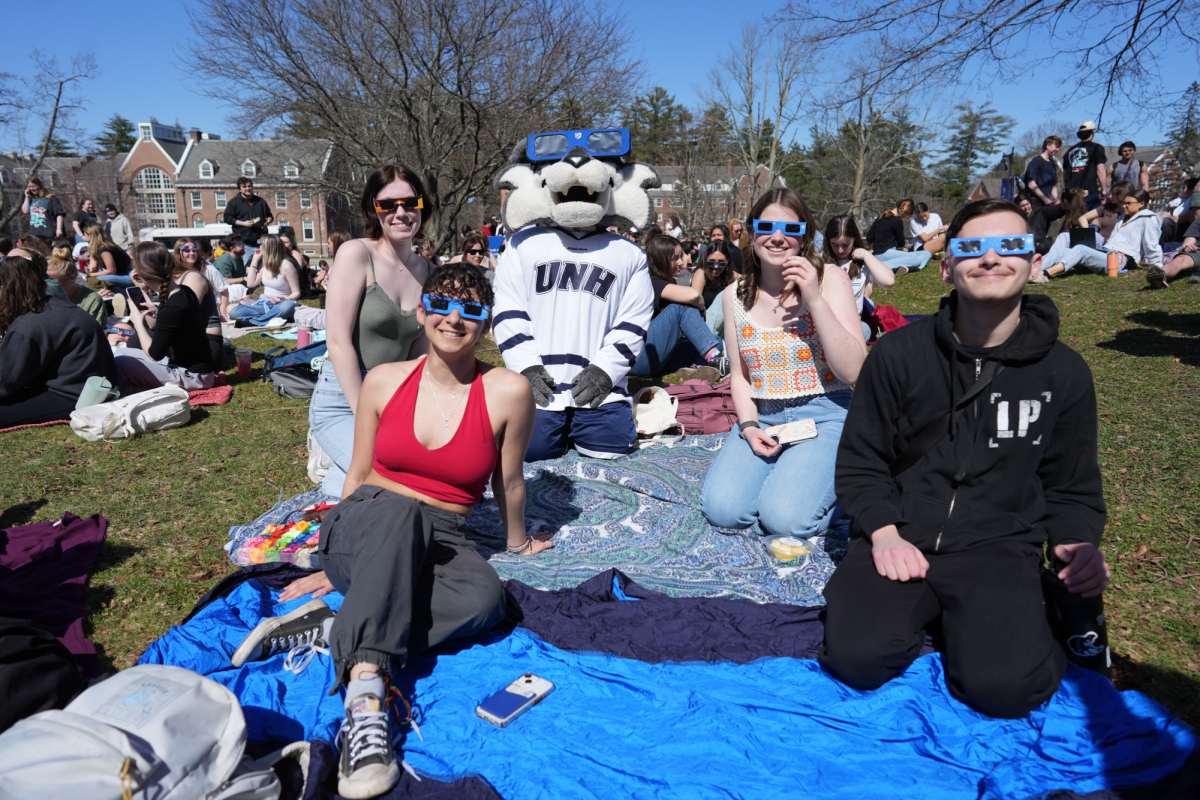Last week, the University of New Hampshire (UNH) community was treated to Irish dramatist Brian Friel’s “Dancing at the Lughnasa,” as performed by members of UNH’s Department of Theatre and Dance.
Directed by Aimee Blesing and assistant director Serena Lockhart, this memory play is the story of five unmarried sisters eking out their lives in a small village in Ireland, in 1936. We see them as the time of the festival of Lughnasa approaches; the pagan god of the harvest is celebrated with drunken revelry and dancing. Their austere existence centers on a radio that works intermittently. The play is narrated through the memory of the illegitimate son of one of the sisters. Michael was raised by his mother and four maiden aunts. He is only seven in 1936, and the play has the women reacting to him notionally-no actor portrays Michael as a child. During this year, his elderly uncle Jack, a priest, returns after serving for 25 years as a missionary in a Ugandan leper colony. Music transforms the correct Catholic women to shrieking, stomping banshees in their own kitchen. Michael meets his father for the first time; Gerry is a charming Welsh drifter who strolls up the lane and sweeps his mother away in an elegant dance across the fields. As the play unfolds, events cause fractures in the family dynamic. This play is widely regarded as Brian Friel’s masterpiece, a tribute to the spirit and valor of the past.
Blessing, senior lecturer in UNH’s Theatre and Dance Department, spoke to the nature of the play.
“It has a general theme of repression,” she said. “There are moments of reaction to key events.”
The character of the adult Michael was played by junior Andrew Knight. Knight, a theatre major with a double option in acting and directing and secondary theatre education, talked about the dynamic of his child counterpart not being present on stage.
“Playing Michael was challenging because I could not play off of the other actors nearly as much as I would in a typical play,” Knight said. “My lines were all delivered to the audience. That was a completely new experience for me and I really enjoyed it. There’s something magical about being in a spotlight, not having to worry about anything in the world except the story that I’m trying to tell.”
Knight explained the high level of preparation required for performances such as this: “I have taken a number of courses that have improved my performing skills over my years with the department. Movement and Vocal Production is an extraordinarily helpful class that teaches actors how to project, enunciate and take care of their voice, and also how to carry yourself physically onstage. I have also taken two levels of acting classes and an auditioning class, which definitely helped me in my analysis of my monologues. During the process, we also had weekly dialect meetings with our Dialect Coach, Emelie Vandenberg, as well as with Professor Deb Kinghorn.”
Both Knight and Eleanor Langthorn, who played school teacher Kate in the presentation, were nominated to go to the Regional Kennedy Center American College Theatre Festival for their performances in the show, with junior Molly Fenn (Maggie) and senior Colin Prato (Jack) selected as alternates.
“A play is a living thing,” Prato said. “We have to listen as a character, to react as a character.”
Junior Dammann (Agnes) is a junior German and theatre major with an acting and directing emphasis .
“Agnes was so much fun to play with,” Dammann said. “On one hand she is this fun-loving passionate woman, but on the other she has to be reserved because she doesn’t want to let Kate see that side of her. Kate can’t use it as ammunition against her. It’s about when she holds herself back, and when she lets herself go. That was both the most fun and challenging thing about Agnes!”
Dammann cited faculty as playing a key role in the player’s preparation.
“David Kaye, the professor that teaches Acting 2, loves to tell us to ‘invent nothing, deny nothing’ and ‘stay open to react,’” she said. “That is basically saying you need to be available to react truthfully and even if you have a reaction that wasn’t planned, go with it, don’t deny it. Deborah Kinghorn, the Movement and Vocal Production professor, teaches us in that class to use our body organically and in a healthy way. Deb teaches us how to hold ourselves organically and then from there you are able to build a character from that point. Deb also teaches us how to yell in a healthy way or how to look like you are sad on stage without actually having that reaction so you don’t hurt yourself physically or emotionally trying to portray a character.”
Dammann echoed the sentiment of other cast members.
“I think this cast is extremely supportive’” she said. “It was my first show since middle school, and the cast kind of took me under their wings to let me be most successful.”
Follow Us on Twitter
The emotional journey of “Dancing at the Lughnasa”
November 8, 2018

Leave a Comment
More to Discover




















